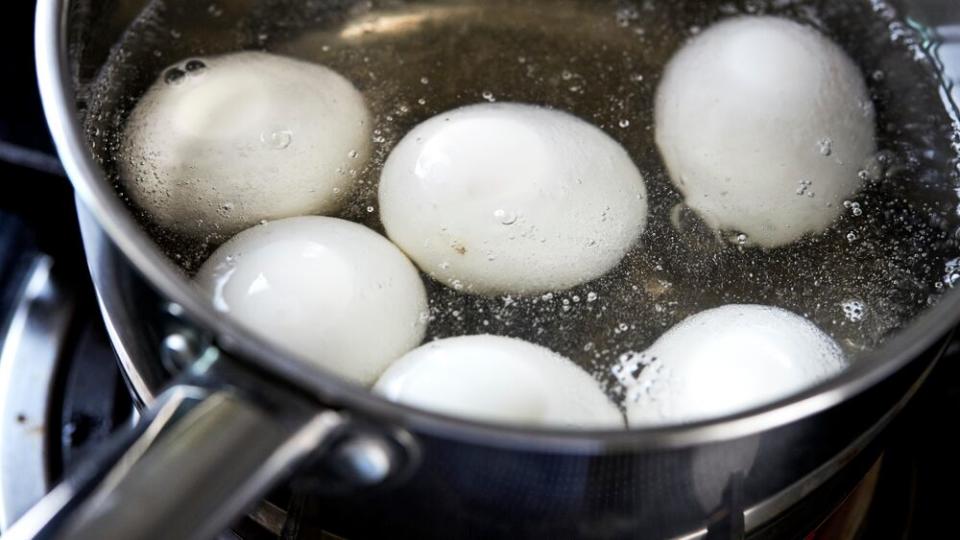Are Hard-Boiled Eggs Good For You?

It’s one of the most divisive food questions there is: Are hard-boiled eggs healthy?
The short answer is yes, hard-boiled eggs are good for you.
Here’s the long answer:
Hard-Boiled Egg Nutrition

Calories
One hard-boiled egg contains only 77 calories and 5 grams of fat, which is even more impressive when you consider how high it is in other nutrients. This means it’s a great addition to healthy, low-cal meals.
Bonus points: Hard-boiled eggs are super filling because of their high protein content (more on that in a minute), so they fit seamlessly into many weight-loss programs.
Cholesterol
When you talk about egg nutrition, you’ve got to talk about the elephant in the room: cholesterol.
People have assumed for many years that, because eggs have high cholesterol (about 70% of the RDA), they must be associated with heart disease.
However, recent research has found that dietary cholesterol is not associated with heart disease risk in most people.
In fact, eggs may increase your HDL (high-density lipoprotein), or “good” cholesterol. People with high levels of HDL are less likely to get heart disease than other people, some studies show.
Protein
You don’t need us to tell you that proteins, the building blocks of the human body, are incredibly important for a number of reasons.
Luckily, eating eggs is an easy and tasty way to add a ton of protein to your diet. Not only does one egg have about 6 grams of high-quality protein, it also contains all nine essential amino acids (which makes it a complete protein, if you’re keeping track).
Vitamin D
Does winter have you feeling a little vitamin D-deficient? Consider adding hard-boiled eggs—which have 10% of the daily RDA—to your diet.
Vitamin D is essential for proper calcium absorption and mood regulation, and can reduce the risk for certain diseases.
Choline
Hard-boiled eggs are an excellent source of choline, a nutrient that’s crazy important for your overall health. Among other things (like boosting your metabolism and promoting heart health), choline can improve your memory and brain function. It seems to be especially essential for aging minds: In an observational study of more than 2,000 people in their early 70s, participants with higher choline levels had better cognitive functioning.
Related: What’s Going Wrong With Your Hard-Boiled Eggs?
What’s the Healthiest Way to Eat Eggs?

Different methods of egg preparation have different benefits. It’s important to remember that high heat may damage some of the nutrients found naturally in eggs, so keep that in mind when you’re choosing a recipe. For example, an over hard egg may have fewer nutrients than an over easy egg.
If you’re looking for low-calorie options, go for boiled or poached eggs. These cooking methods don’t require the addition of any fat (butter, oil, etc).
Other types of prepared eggs, like fried or scrambled, are still packed with nutrients. To keep them as heart-healthy as possible, choose a cooking oil that is low in saturated fats (like canola).
How to Make Hard-Boiled Eggs
WATCH: The Best Way to Cook Hard-Boiled Eggs
Last year, our very own senior editor, Darcy Lenz, outlined the best ways to make hard-boiled eggs. Among her foolproof methods are boiling, simmering, baking, steaming, and—believe it or not—cooking in an Instant Pot.
Find all the hard-boiled egg info you could ever need right here: 5 Foolproof Methods for Making Perfect Hard-Boiled Eggs
Get the recipe: Foolproof Hard-Boiled Eggs

